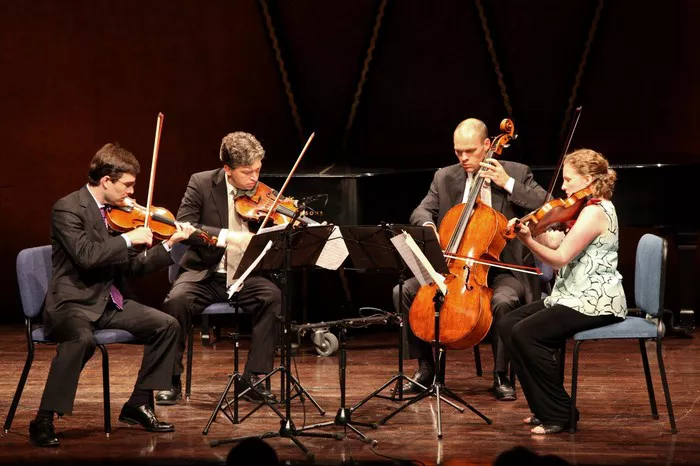Classical music has an ineffable ability to uplift the human spirit, transcending barriers of time, culture, and language. Its intricate melodies, harmonies, and compositions have the power to evoke profound emotions and transport listeners to realms of beauty and wonder. In this exploration, we delve into some of the most uplifting classical music pieces, each a testament to the enduring brilliance of this timeless genre.
The Universal Appeal of Uplifting Classical Music
From the soaring crescendos of symphonies to the delicate trills of piano sonatas, classical music encompasses a vast array of styles and emotions. Yet, amidst this diversity, certain compositions stand out for their ability to uplift and inspire. Whether through their majestic grandeur, tender lyricism, or jubilant exuberance, these pieces have earned a place in the hearts of listeners around the world.
1. Ludwig van Beethoven – Symphony No. 9 in D minor, Op. 125 (“Choral”)
No exploration of uplifting classical music would be complete without mentioning Beethoven’s Symphony No. 9, often referred to as the “Choral Symphony.” This monumental work, completed in 1824, is celebrated for its stirring final movement, which features Friedrich Schiller’s poem “Ode to Joy” set to music.
From its triumphant opening bars to the resplendent chorus that crowns the finale, Symphony No. 9 exudes a sense of joy and triumph that is unparalleled in the classical repertoire. Its message of unity and brotherhood, conveyed through the universal language of music, continues to resonate with audiences to this day.
2. Johann Sebastian Bach – Brandenburg Concerto No. 3 in G Major, BWV 1048
Bach’s Brandenburg Concertos are a testament to the composer’s mastery of counterpoint and orchestration, and none more so than the exuberant third concerto in G major. Written around 1721, this concerto showcases Bach’s trademark contrapuntal textures and intricate interplay between instrumental voices.
From its lively opening allegro to the graceful elegance of its central adagio, Brandenburg Concerto No. 3 brims with infectious energy and vitality. Its buoyant rhythms and kaleidoscopic harmonies make it a perennial favorite among audiences and performers alike, serving as a timeless reminder of Bach’s unparalleled genius.
3. Pyotr Ilyich Tchaikovsky – Symphony No. 6 in B minor, Op. 74 (“Pathétique”)
Tchaikovsky’s Symphony No. 6, subtitled “Pathétique,” stands as a poignant testament to the composer’s emotional depth and sensitivity. Written in the final year of Tchaikovsky’s life, this symphony is imbued with a sense of profound longing and introspection, yet it also contains moments of transcendent beauty and catharsis.
The symphony’s final movement, with its haunting melodies and anguished climaxes, is particularly poignant, leaving listeners deeply moved yet uplifted by the sheer intensity of Tchaikovsky’s musical expression. In its fusion of tragedy and triumph, Symphony No. 6 remains a powerful reminder of the transformative power of music to touch the deepest recesses of the human soul.
4. Wolfgang Amadeus Mozart – Symphony No. 41 in C Major, K. 551 (“Jupiter”)
Mozart’s Symphony No. 41, nicknamed the “Jupiter Symphony,” is a dazzling display of the composer’s unmatched melodic inventiveness and contrapuntal skill. Written in 1788, this symphony exemplifies the classical style at its zenith, with its perfect balance of form, expression, and technical virtuosity.
From its majestic opening theme to the exhilarating counterpoint of its finale, Symphony No. 41 exudes a sense of joy and exuberance that is quintessentially Mozartian. Its intricate textures and playful interplay of musical ideas make it a perennial favorite among audiences and performers alike, earning it a well-deserved place in the pantheon of classical masterpieces.
5. Johann Strauss II – The Blue Danube Waltz, Op. 314
No exploration of uplifting classical music would be complete without mentioning Johann Strauss II’s immortal Blue Danube Waltz. Composed in 1867, this iconic piece captures the wistful charm and elegance of Vienna’s golden age, evoking images of swirling ballrooms and glittering chandeliers.
From its lilting waltz rhythm to its soaring melodies and lush orchestration, The Blue Danube exudes a sense of grace and sophistication that is as timeless as it is enchanting. Its infectious joie de vivre and irresistible charm have made it a perennial favorite at concerts and social gatherings around the world, ensuring its enduring popularity for generations to come.
Conclusion
In conclusion, the most uplifting classical music pieces possess a timeless quality that transcends the boundaries of time, culture, and genre. Whether through the majestic grandeur of Beethoven’s Ninth Symphony, the exuberant energy of Bach’s Brandenburg Concerto No. 3, or the poignant beauty of Tchaikovsky’s Symphony No. 6, these compositions continue to captivate and inspire listeners with their profound emotional depth and expressive power.
As we continue to explore the rich tapestry of classical music, let us never forget the transformative impact it can have on our lives, uplifting our spirits and nourishing our souls with its timeless beauty and wisdom. For in the words of the German poet Heinrich Heine, “Where words leave off, music begins,” and it is through the universal language of music that we can truly experience the ineffable beauty and wonder of the human spirit.

